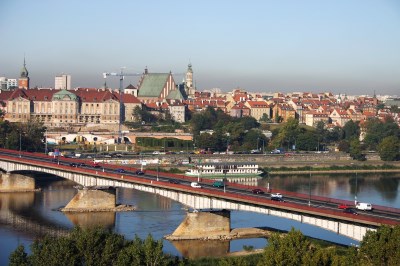
Poland had been defending its freedom from foreign aggressors for hundreds of years; it is a country with a long and rich history.
Miezkol I was the first documented ruler of Poland. Before him, Slavic tribes inhabited the area. He converted to Christianity in 966 A.D. His conversion brought Poland into the community Western Cristian nations. In 1025, Poland’s first coronation took place at Wawel Cathedral in Krakow, and the Kingdom of Poland began to take form.
Poland built close ties with the Grand Duchy of Lithuania in the decade following the first coronation. Lithuania accepted Christianity at Poland’s urgings in 1385, which marked the beginning of the Polish-Lithuanian union. This union lasted for over 400 years. Shortly thereafter, the Teutonic Order, a catholic military group, spurred campaigns against the Polish-Lithuanian union. In 1410, during the Battle of Tennenberg, the united forces of Poland and Lithuania completely destroyed the Teutonic knights. This was one of the fiercest and most important battles of medieval times. Still today, it is seen as a momentous event in Polish history.
The 16th century was a prosperous time for Poland. During this era, Poland advanced culturally and developed in the fields of science and art. The famous Nicolaus Copernicus was a Polish astronomer that lived during this time. He formulated the first modern heliocentric theory of the solar system which is the basis of modern astronomy.
During this same century, when Europe was full of religious turmoil, Poland declared a policy of religious tolerance. This policy attracted many refugees from other European countries who were facing religious persecution. During this time, Polish territory expanded. Poland and Lithuania were known as the Republic of Both Nations, and they were united to form the Polish-Lithuanian Commonwealth.
King Zygmunt III of Poland moved the country’s capital from Krakow to Warsaw in 1596. Shortly thereafter, the Commonwealth entered a period of decline. Poland faced internal conflict, and after an invasion by the Swedes, the country was left in shambles.
In the 18th century the Polish republic was suffering and required reorganization. Although the king of Poland introduced numerous reforms, Poland gradually sucame to foreign influence. The Poles remained a prominent ethnic group, however, and fought alongside the Bonaparte. The state also organized several uprisings during the 19th century, all of which failed.
Poland ultimately regained its freedom when World War I broke out. On November 11, 1918, Poland finally reappeared on the map of Europe as an independent nation after 123 years of subjugation.
On September 1, 1939, the Nazis invaded Poland, and Poland mourned the loss of its hard-earned freedom. Poland was under the power of the Nazis and then the Soviet Union until the 1980’s. Today Poland has a parliamentary democracy, and is recognized in the European Union.
Not only has Poland managed to overcome many challenges, but this strong nation has offered its own contributions to European history and culture for hundreds of years.
[Source:
intopoland.com
]

